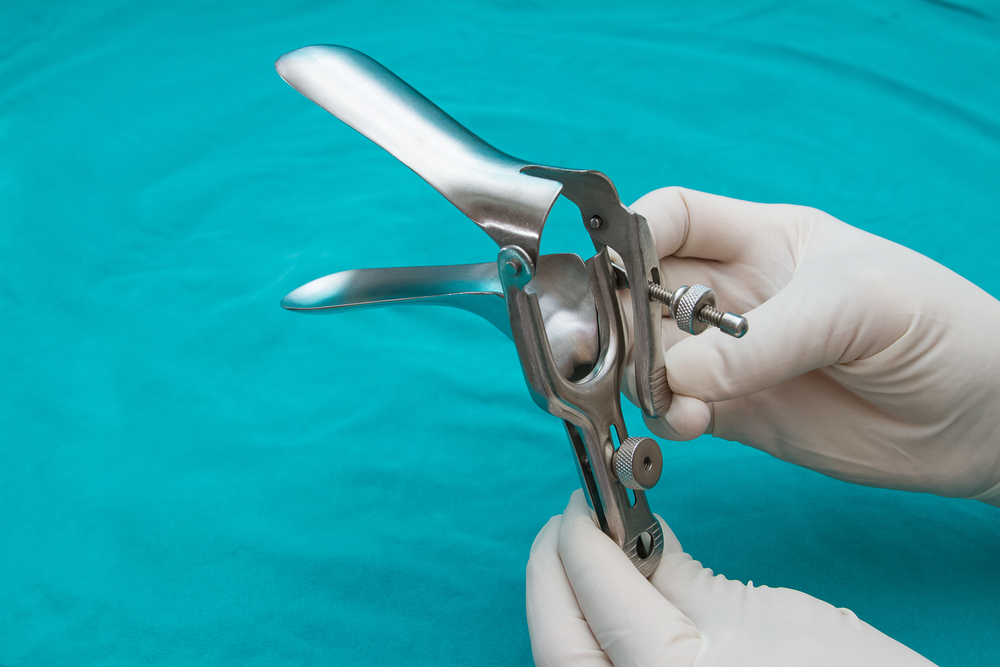Understand High Risk Pregnancy
Published on 03/08/22
What are some high risk pregnancy factors? What does the term ‘high-risk pregnancy’ mean? Whether it’s your first or third pregnancy, hearing your pregnancy is high risk can be scary. However, this can mean a variety of conditions.
High-term pregnancy suggests that a healthy pregnancy and delivery needs a little extra care. High risk pregnancy factors are often the case of chronic illness or conditions that put a woman in the high-risk pregnancy category. The problems range from minor to severe, requiring extra care either way.
Conditions could be the cause of pre-existing health issues or conditions could be related to a developed issue during pregnancy. Doesn’t mean your pregnancy is more challenging in a lot of cases. However, it does mean you will have to consider consulting with your maternal-fetal medicine specialist and undergo more monitoring than the average low-risk pregnancy.
What are some of the preexisting high risk pregnancy factors?
- Obesity. Conditions such as being overweight. Obesity can contribute to diabetes during pregnancy and difficult births. Which can cause a fetus to be larger than normal and make birth more difficult. A condition such as obesity can increase the risk for high blood pressure, gestational diabetes, c-section delivery, preeclampsia, stillbirth, and neural tube defects. Studies have shown obesity also can raise the risk of heart problems by 15% in infants.
- Additional existing health conditions such as, diabetes, being HIV-positive, and high blood pressure. Also conditions like blood pressure can be tricky, most women with just high blood pressure still continue to have healthy pregnancies and delivery. High blood pressure that doesn’t get under control, can damage internal organs like the kidneys. Close monitoring of conditions such as blood pressure is important to detect any changes and decisions in treatment.
- Women who are carrying more than one or multiple fetuses (like twins). 93% of triplets are born at less than 37 weeks. Multiple fetuses can cause conditions such as premature labor, preterm birth and preeclampsia.
- Women who are still teenagers or women above the age of 34 also increases the risk for preeclampsia and gestational high blood pressure.
- Polycystic Ovary Syndrome (PCOS). PCOS causes higher rates of gestational diabetes, c-section, and preeclampsia. Also, a higher rate of pregnancy loss or miscarriage before 20 weeks of pregnancy.
- Diabetes. It will be vital for a pregnant woman to manage their blood sugar levels. High sugar levels can cause birth defects. A woman with diabetes may have changes in their metabolism during pregnancy that requires extra care.
- Thyroid Disease. Overactive or under-active thyroid can cause issues with the fetus such as poor weight gain, brain development, and heart failure.
- Autoimmune disease. These diseases such as multiple sclerosis and lupus, can increase issues during pregnancy. If not monitored properly, these diseases increase the risk of stillbirth and preterm birth. It’s also the case that prescribed medicine to treat these diseases may be harmful to the fetus which means the woman will have to work closely with a healthcare professional.
- HIV/AIDs. Although effective treatments have reduced transmission of HIV/AIDs from mother to fetus, there’s still a chance that during pregnancy, labor and delivery, and breastfeeding can cause the disease to spread.
- Kidney Disease. Kidney disease can have difficulties getting and staying pregnant. In addition to problems during pregnancy such as low birth weight, preeclampsia, and preterm delivery. Kidney disease requires additional treatments, and specific diet and medication.
High Risk Pregnancy Factors and Testing
With advancements in technology, fortunately, has helped improve diagnosing high risk pregnant women. Making it easier to monitor and treat for the best outcome. Talk to your maternal-fetal doctor for fetal imaging techniques such as MRIs, to detect a multitude of conditions in both mother and baby. Some tests are known to be performed as early as 10 weeks during pregnancy.
High-Risk Pregnancy and Multiples
Women with multiple fetuses do develop a higher chance of complications. For this reason alone, multiple pregnancies are most likely considered high-risk.
Multiples Require Special Prenatal Care
Multiple pregnancies schedule prenatal care visits more frequently than a singleton pregnancy. This is for early signs of complications.
During these visits, it may be required for additional testing. More tests are used to diagnose developing complications. Ultrasounds usually are performed every four to six weeks for proper fetal growth. With additional testing like genetics, if you decide.
It is known that 50% of multiple pregnancies are considered high risk because of premature birth. Premature babies may develop problems breathing or properly digesting. Every effort is given to ensure the risks are reduced and the pregnancy is prolonged.
Depending on the the outlook of the pregnancy, your maternal-fetal doctor may recommend specific type of testing:
- Lab testing – testing fluids like urine for urinary tract infections or infectious diseases such as HIV and syphilis.
- Genetic screening – A sample of the fluid that protects the baby during amniocentesis can be taken from the uterus. This fluid can identify certain genetic conditions or abnormalities of the brain and spinal cord.During CVS (chorionic villus sampling), sample cells are removed from the placenta and can identify certain genetic conditions.
- Ultrasound – specialized and targeted and cervical length – Specialized ultrasounds are an imaging technique that uses high-frequency sound waves to produce images of the baby while in the uterus. This type of ultrasound targets possible problems in abnormal development.
- Prenatal cell-free DNA screening – A maternal blood sample is extracted from both the mother and fetus and screened for specific chromosome problems.
- Biophysical Profile – This is an ultrasound used to check on and evaluate the fetus. Monitor heart-rate and the well-being of the growing baby.
It’s important to discuss these tests and risks with your healthcare provider.
Managing Medical Conditions:
There are symptoms you could experience that might affect your pregnancy and health. To avoid possible medical conditions that might affect your labor and delivery, talk to a health care provider if:
- Pain/cramping in the lower abdomen
- Blurred vision
- Sudden severe swelling in the face or hands
- Dizziness
- Persistent Nausea
- Harmful thoughts
- Decreased fetal activity
- Severe headaches
- Vaginal bleeding or watery vainal discharge
- Painful urination
- Fever
Does High Risk Pregnancy Affect Labor and Delivery?
Considering a lot of high risk pregnancy factors could result in problems during labor. It’s important to discuss with your maternal-fetal doctor the best option for delivery.
Most likely home births are not an available option. Hospitals have equipment and machines to help monitor the birth process closely.
If you’re having twins or multiples, early labor is highly likely. Or the doctor may decide to induce you to prevent additional health problems arising for you and the baby.
There also may be situations where natural or vaginal birth may be too risky and the doctor may decide on a c-section. It’s a good idea to talk to your doctor to understand how to prepare mentally and during labor.
High Risk Pregnancy and Emotional Support
High risk pregnancies can evoke many emotions. Even so, it may be hard to enjoy the pregnancy and all the joys. Stress and worry of your health and the baby can shift the focus and make it hard to manage your feelings.
Building a support network, starting with your healthcare provider, can help ease the stress of high risk pregnancy details. Support doesn’t have to be just your healthcare provider, but also family, friends, and other women who have experienced a similar situation.
Having a controlled outlet can help manage your emotions as well as keep informed about issues and complications. Managing these feelings can help keep fear and worry at bay.
Are Future Pregnancies Expected to be High-Risk?
Each pregnancy is different. Having one high risk pregnancy or even high risk pregnancy factors does not deem all pregnancies high risk. A complication may occur in one pregnancy but not another.
However, preterm pregnancies do leave women additionally susceptible to future preterm labor. It is likely that if this occurs, your doctor might decide to manage your pregnancy with medication, and a maternal-fetal medicine specialist will monitor your cervical length with an ultrasound.
Should You Consult with a Maternal-Fetal Medicine Doctor for High Risk Pregnancy Factors?
It can be beneficial to consult with a maternal-fetal specialist if you already have pre-existing medical conditions or genetic risks. The many pre-existing conditions above may need to be monitored during the pregnancy. A maternal-fetal specialist may alter the type of medication to maintain your health and prevent any bad effects. For diabetes, a maternal-fetal doctor can help optimize blood sugar and reduce the risk of fetal anomalies. Even in obesity, a maternal-fetal medicine specialist can review the benefits of weight loss before pregnancy.
Since preconception genetic screening has advanced in technology in recent years, getting testing for specific genetic conditions that are common in ethnicity. Assessing the risk of being a carrier to the fetus. As well as common genetic conditions such as cystic fibrosis.
If you have been told your pregnancy is high risk and want specialized care, call one of our six convenient NYC locations or schedule a video consultation online today. Women with high-risk pregnancies can count on the experienced and compassionate care of the team at Rosh Maternal & Fetal Medicine in NYC. They’ve helped thousands of women safely deliver healthy babies. Come visit your NYC OBGYN.




